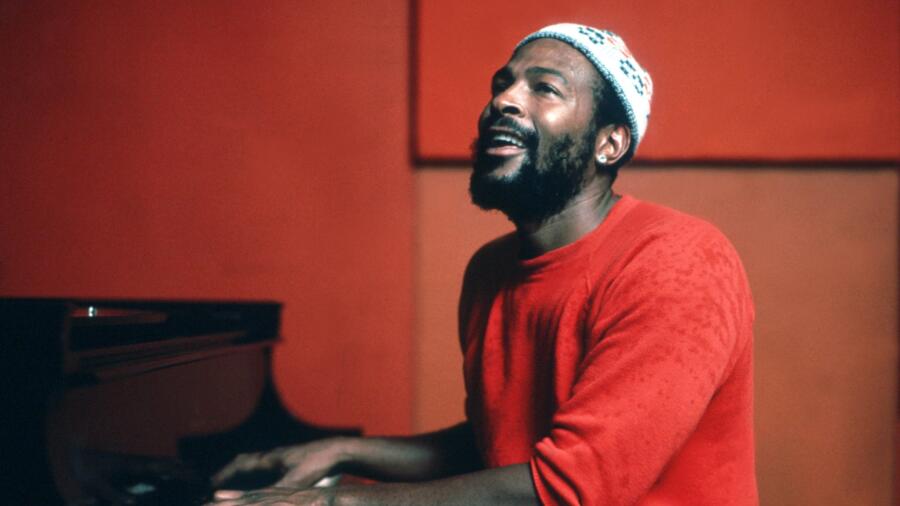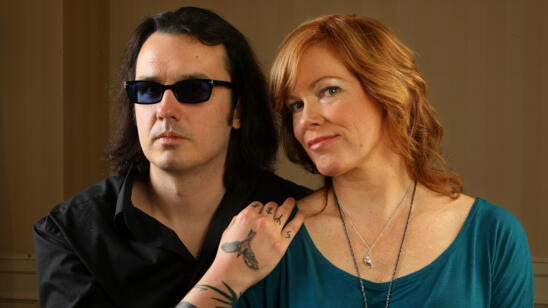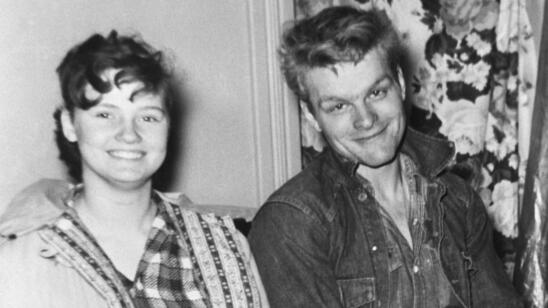From the time Marvin Gaye was a young boy, before he became one of Motown’s brightest stars and was inducted into the Rock and Roll Hall of Fame, he repeatedly heard from his father: “You’ll never be anything.”
The legendary soul singer, who added the “e” to his last name early in his career, endured a childhood of physical and emotional abuse at the hands of his Pentecostal reverend father, according to biography Trouble Man by author Steve Turner.
It was a dysfunctional relationship that ended in tragedy, when Marvin Sr. shot his son to death during a heated argument just hours before the star’s 45th birthday.
The older Marvin hated his son for being so attractive to women, according to Gaye’s ex-wife Janis Gaye. But the relationship worsened as his son’s phenomenal professional success grew, with megahit songs like “Heard It Through the Grapevine,” “What’s Goin’ On” and “Sexual Healing.” “It created conflicts when Marvin…started to earn more than his daddy, and everybody ran to Marvin,” the singer’s “Let’s Get It On” co-writer Ed Townsend Gaye told Gaye biographer Turner.
Marvin Sr. resented his son’s success, said Turner in an interview with A&E True Crime. “He fancied himself as a prophet and message-giver, and then Marvin became hailed as a voice of his generation, and yet Marvin wasn’t living a Godly life. That seemed so unfair to Reverend Gaye. Also, Marvin was very close to his mother.”
As an adult, Gaye led a glamorous but troubled life. His duet partner Tammi Terrell collapsed in his arms onstage, dying of a malignant brain tumor two years later. The crushing depression that ensued dogged Gaye until his death. When stardom brought pressure to continue churning out hits, he developed a devastating cocaine addiction, became cruel to his wives and eventually became destitute, owing money his ex-wives Janis and Anna and to the IRS, according to Divided Soul. (According to Jet magazine, he owed the government about $6 million.) He moved back in with his parents in 1983.
Then his life ended in familial violence.
On April 1, 1984, the day before Gaye’s 45th birthday, he intervened in an argument between his parents at their shared Los Angeles home, according to Turner’s Trouble Man. “‘You can’t talk to my mother like that,'” he allegedly said. Gaye and his father got physical. The younger man allegedly punched his father repeatedly in the face. (Police photos back up this claim, the book asserts.) After Gaye walked away, returning to his bedroom, his father soon appeared in the doorway with a .38-caliber revolver and shot him twice. Because Gaye was seated, the first bullet was fatal, piercing his heart, lung, liver, stomach and left kidney. Gay then walked closer, shooting his already dead son point-blank through the shoulder.
Most filicide—when parents kill their children—occurs when children are young. A Brown University study found that 72 percent of offspring murdered by their parents are under six years old; adult offspring made up 18 percent of victims. When an adult child is killed by a parent, the father bears responsibility 78 percent of the time. While maternal filicide often has roots in psychosocial stress and a lack of family or community support, paternal filicide is more likely to be connected to anger and jealousy. It is also more likely to be very violent, involving a firearm, stabbing or head injury, according to several U.S. studies compiled in the journal Forensic Science International.
Gaye’s murder bears some other hallmarks of traditional paternal filicide: a father with troubled finances, a history of domestic abuse and a belief that what he did was the right thing to do.
The older Gay claimed self-defense, saying he was afraid of his strong, drug-using son. Gaye’s mother Alberta Gay told his “Sexual Healing” co-writer and biographer David Ritz in Divided Soul: The Life of Marvin Gaye that the first time she spoke to her husband after posting his $30,000 bail, “He started speaking to me, but said nothing about Marvin. His eyes were dry. He wasn’t apologetic or repentant. He acted like someone who had finally gotten something out of the way.”
Turner says Gaye’s bodyguard Andrew White played a recording for him in which Gaye said his father had threatened his life before. “‘I brought you into the world, and if you cross me, I can take you out,'” Turner recalls Gaye saying. “[White] said that’s when Marvin told him that it was as if this opened a way for him to leave all his troubles behind by effectively committing suicide. That way he’d be killed and yet in a way, he would kill his father by passing on a burden of guilt.”
In his memoir, Marvin Gaye, My Brother, Frankie Gaye said his brother’s last words were: “I got what I wanted… I couldn’t do it myself, so I made him do it.”
Beyond his adulthood problems, Gaye never seemed to get over his abusive childhood.
“He was a sensitive soul,” says Turner. “He thought deeply, and he could never understand why his father didn’t acknowledge his success and give him some praise.” As tumultuous as their relationship was, Gaye seemed to try to please his father at times. “I don’t think he hated his father,” says Turner. “He wanted to treat him honorably. He bought him cars and invited him to shows.”
Immediately after making bail, Gay returned home to the crime scene and lived there. “I’ll never live there again because it’s nothing but a tomb to me,” said Alberta Gay. She filed for divorce, but settled for being separated.
At age 70, Gay was sentenced to a six-year suspended sentence and just five years probation because of his failing health and Gaye’s attack on him. (Before the trial, a small tumor in his brain was found and removed). But any victory was short-lived. According to Alberta, at the time of his release, he drank a fifth of vodka a day. He died of pneumonia, contracted at his nursing home, in 1998.
Related Features:
Patrizia Reggiani and the Bizarre Events Surrounding the Murder of Maurizio Gucci
Who Was the ‘Hollywood Ripper’ and What Was His Connection to Ashton Kutcher?
How Rodney Alcala, ‘The Dating Game Killer,’ Used Photography to Lure Victims


